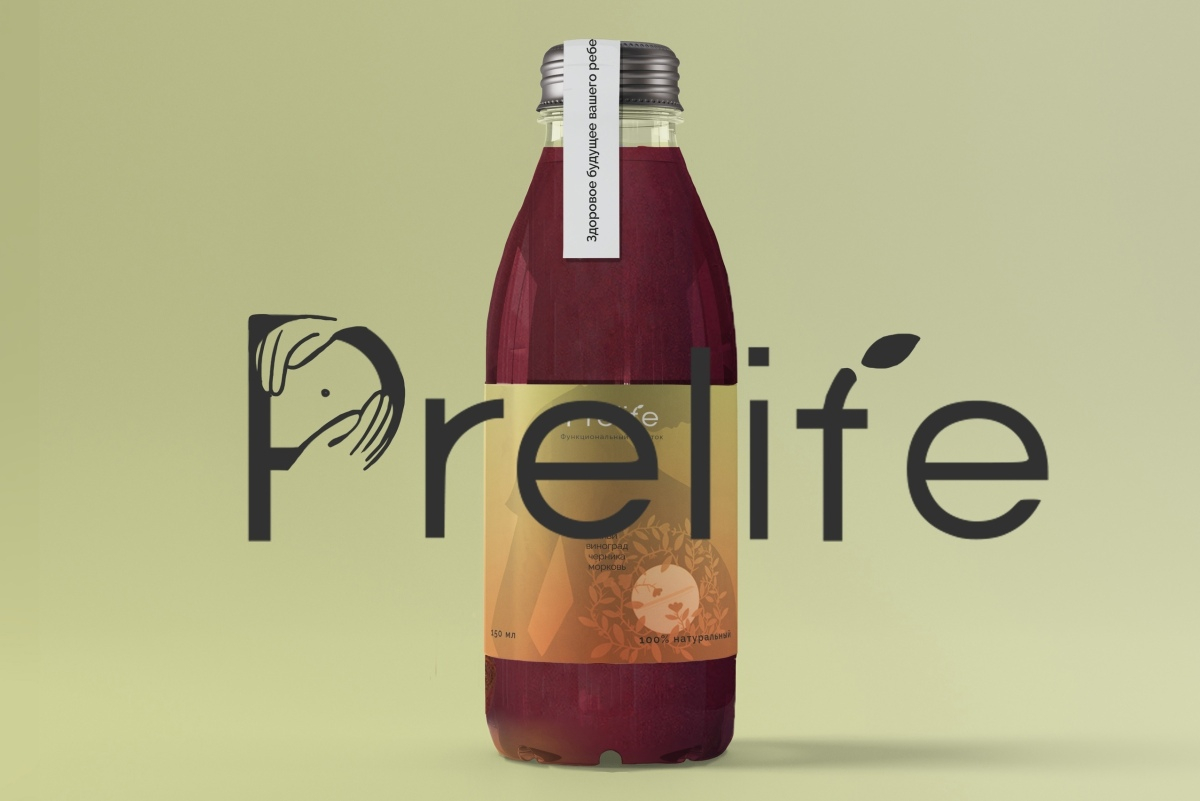Students of St Petersburg University develop a drink that reduces inflammatory activators during pregnancy

The finalists of the ‘SPbU Start-up 2021’ contest have created a functional beverage that could help reduce the negative effects of alcohol on expectant mothers who have consumed alcohol before and during the early stages of pregnancy.
Studies show that alcohol triggers an immune system response, which starts to synthesise alarmins (from the English ’alarm’). These ’alarm molecules’, such as the amphoterin protein, take part in cell division and initiate inflammatory processes. There is scientific evidence to demonstrate that increased levels of alarmins in the blood of a pregnant woman can impair the cognitive abilities of the child. This is the challenge that the product, developed by the PreLife team, is meant to address.
’We have created a functional beverage whose components reduce the amount of alarmins in the body. It helps to reduce harmful compounds that can cause pathologies in the baby. Sometimes in the early stages of pregnancy a woman is unaware of her pregnancy and consumes alcohol. In this case, the drink will help to reduce the amount of alarmins. However, it is not able to neutralise the effects if alcohol is constantly abused,’ said Sergei Eresko, PreLife team captain.
This product is for those who take a responsible attitude to their health and want to prepare for pregnancy by reducing the level of alarmins in the blood, if necessary.
Sergei Eresko, PreLife team captain
According to research, alarmins can still be detectable in the human body for more than six months. So, if a woman has consumed alcohol shortly before pregnancy, there is a need to reduce their amount. The drink has a cumulative effect: in order to normalise alarmin levels, it requires a course of treatment after consultation with a doctor.
The ‘SPbU Start-up’ contest was held at the University for the sixth time. Teams that presented best knowledge-intensive and commercially viable business models receive monetary prizes from the Endowment Fund of St Petersburg University: 300,000 roubles for the first, 200,000 for the second, and 100,000 for the third place. Additionally, the two winning teams may be offered to establish a small innovative enterprise with the participation of St Petersburg University. Grants for their projects’ development will amount to 1,000,000 and 700,000 roubles for the first and second places respectively. For detailed information about the ‘SPbU Start-up 2021’ student contest please visit the website of the Endowment Fund of St Petersburg University.
The drink contains compounds from anti-inflammatory plants (ginseng, rhodiola, sage, and walnut) in combination with a fruit and berry base. This will make it pleasant to drink and diversify the flavour range. It took the students of St Petersburg University about five years to calculate the concentration of the substances in the product to avoid overdosing and side-effects. However, the drink has no contraindications except for individual intolerance to the components and allergies. This makes it a universal and safe preventive remedy.
Our idea is to produce medicines, which many people are reluctant to use, in a tasty and convenient form. In this way, we can encourage people to take better care of their health.
Natalia Serebrianaia, Research Supervisor of the start-up project, Professor in the Department of Cytology and Histology at St Petersburg University
’The risks are minimal: adaptogens, such as ginseng, have been used in medicine for a long time. People often refuse to drink unpalatable medicines from pharmacy bottles, but in this case, flavour and benefits are combined. This approach lets people take care of their health and significantly improve the condition of those who need it,’ said Natalia Serebrianaia, Professor in the Department of Cytology and Histology at St Petersburg University and Research Supervisor of the start-up project.
The team that developed the functional beverage included students from Biology, Chemistry, Management and Law departments. The projects that made it to the finals of the St Petersburg University Start-up Contest can subsequently become graduation projects. For example, a presentation of a start-up project and its business plan are a sufficient requirement for a graduation project in bachelor’s programmes. This year, Ekaterina Sizova, a second-year master’s student of the Graduate School of Management of St Petersburg University, presented the project for defence. Ekaterina developed a financial model and a business plan as a project manager. She conducted a study of the theoretical aspects of marketing communication and market research on the Russian market for functional beverages for her graduation project under the supervision of Sergei Starov, Professor in the Department of Marketing of the Graduate School of Management.
PreLife team
-
Sergei Eresko, first-year doctoral student in Biology, author of the project and team captain
-
Ekaterina Sizova, second-year master’s student in Management, responsible for the development of the project and product launching
-
Roman Khabibullin, second-year master student in Chemistry, responsible for testing plant products at the Institute of Chemistry
-
Kristina Tokareva, fourth-year bachelor’s student in Law, responsible for legal support and legal aspects of the project
’To defend a start-up as a graduation project is an excellent opportunity. I am very happy that the University allows me to do so, as PreLife has been very important to me. It’s great that in my last semester I was able to focus on the project and improve it. The project has provided the basis for conducting empirical research and my graduation project now meets all the requirements of the curriculum’, said Ekaterina Sizova.
The effectiveness of the compounds selected for the functional drink and their dosage have undergone laboratory tests on rats and zebrafish (Danio rerio). Now the developers are negotiating testing on a group of volunteers at the St Petersburg State Paediatric Medical University under the supervision of Marat Airapetov, Associate Professor in the Department of Pharmacology, and the Faculty of Medicine of St Petersburg University. There is also an agreement on the production and release of the first batch of the beverage.

